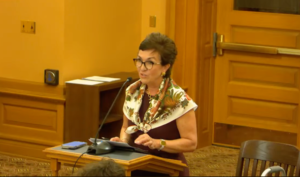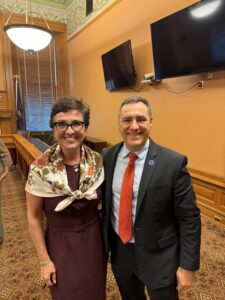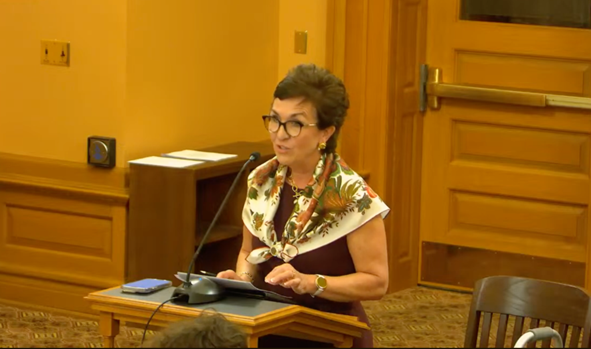By Kim Borchers, Associate Director of Civic Leadership at the Policy Circle
We are all familiar with the John F. Kennedy quote, “Ask not what your country can do for you but what can you do for your country?” Sounds great coming from a politician or on FB posts but do we mean it? If we did, what would that require of us?
As the Associate Director of Civic Leadership at the Policy Circle, I have the amazing honor of working with women change agents across the country. With our focus on military outreach last year, my cup was filled by working with impressive women who are serving in our armed services or the spouses of those serving. As a civilian, I was completely ignorant of the many challenges that military families encounter with their multiple moves which impact their ability to connect with a community, build financial stability, develop professional relationships, and ensure their children are thriving in all aspects of their lives. The rich conversations about their challenges were a real eye-opener. What could I do to make a difference in their lives? What ripple could I make, to let them know I cared about them connecting to their community?
Based on a recent survey by the Institute for Veterans and Military Families 72% of active-duty personnel and their spouses required an absentee ballot because they were not registered to vote in the same place as they reside. That means we have thousands of armed service personnel and their spouses across our nation, who because of their residency status, are unable to volunteer as a poll worker in their community. There just appeared to be something wrong with the logic that we can ask these families to sacrifice so much but then deny them the ability to be volunteer poll workers.

The challenge of poll worker recruitment is a nationwide problem with over six out of ten poll workers being 61 years of age or older. The United States Election Assistance Commission’s recent survey data shows that 65% of jurisdictions reported that it was “very difficult” or “somewhat difficult” to obtain poll workers for polling locations and that number jumped to 88% in more populous areas. Right in our backyard, we have this committed group of Americans who are committed to serving and we have election officers who need volunteers. It was now an issue of connecting the dots.
My small contribution was forwarding a piece of legislation that would enable armed services personnel and their spouses the ability to volunteer as a poll worker even if they were registered to vote in another part of the country. As of today, this bill has been introduced and had a hearing last week. It is in committee and waiting to be worked. I’m hopeful that it will make it to the House for a floor vote in the next few weeks before turnaround. Transforming an idea into a bill and getting a hearing in a committee is not an easy task and none of this would have been possible without the support of Representative Pat Proctor who jumped on this after our first phone call. This is the value of digging your well before you need it. Decades of relationships allowed me to make the right connections to move this idea forward.

Every day I’m learning that the power to make a difference lies within each of us. While it may be easy to feel overwhelmed by the enormity of an issue, it is important to remember that even small actions can create a ripple effect that reverberates far beyond our immediate surroundings.
One of the most inspiring aspects of making a difference is the ability to impact the lives of others, even when we are not directly affected by the same struggles. While I may not be serving in the armed services, I could indirectly make a difference for those who are serving. It’s my small way of doing something for my country. By choosing to be a catalyst for change, we have the opportunity to inspire others to do the same. Just as a single pebble creates ripples in a pond, our actions have the potential to create waves that reach far and wide. Be a pebble!




